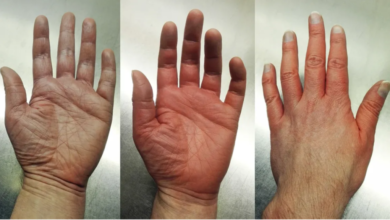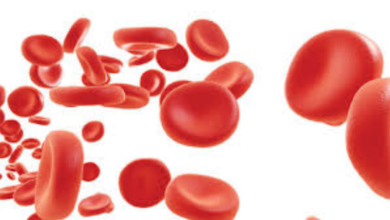
What is Essential Thrombocythemia (ET)?
Essential thrombocythemia (ET) is a rare chronic myeloproliferative neoplasm characterized by the overproduction of platelets in the bone marrow. Platelets are blood cells that help with blood clotting. However, an excess of platelets can increase the risk of blood clots.
Types of Essential Thrombocythemia (ET)
While there aren’t distinct subtypes of ET, it can be classified based on its clinical course and the presence of certain genetic mutations.
Symptoms of Essential Thrombocythemia (ET)
Symptoms of ET can vary widely and may not be present in all cases. Some common symptoms include:
• Fatigue
• Headaches
• Dizziness
• Tinnitus (ringing in the ears)
• Night sweats
• Weight loss
• Splenomegaly (enlarged spleen)
• Thrombotic events (blood clots)
• Bleeding events
Causes of Essential Thrombocythemia (ET)
The exact cause of ET is unknown. However, it’s believed to be associated with genetic mutations that affect the bone marrow stem cells.
Who Can Suffer from Essential Thrombocythemia (ET)?
ET can affect people of all ages, but it’s more common in adults.
Diagnostic Tests for Essential Thrombocythemia (ET)
To diagnose ET, a doctor may use a combination of tests, including:
• Complete blood count (CBC): To check for an elevated platelet count.
• Bone marrow aspiration and biopsy: To examine bone marrow cells.
• Genetic testing: To identify specific genetic mutations associated with ET.
Stages of Essential Thrombocythemia (ET)
ET is not typically staged in the same way as other types of cancer. However, it can progress through different phases, including the chronic phase and the accelerated phase.
Treatment of Essential Thrombocythemia (ET)
The treatment for ET aims to reduce the risk of blood clots and manage symptoms. Common treatment options include:
• Phlebotomy: A procedure to remove excess blood.
• Medications: To reduce platelet production.
• Low-dose aspirin: To reduce the risk of blood clots.
Diet and Essential Thrombocythemia Prevention
While a healthy diet can support overall health, it cannot directly prevent ET. However, maintaining a balanced diet can help manage symptoms and reduce the risk of complications associated with the disease.
Here are some general dietary recommendations:
• A balanced diet: A diet rich in fruits, vegetables, and whole grains can help.
• Limit processed foods and sugary drinks: These can contribute to weight gain and other health problems.
• Maintain a healthy weight: Obesity is linked to an increased risk of certain health conditions.
Overall Survival Rate of Essential Thrombocythemia
The overall survival rate for ET varies depending on the individual’s response to treatment and the development of complications. With effective management, many people with ET can live long and relatively healthy lives.
Doctor to Consult
A hematologist-oncologist is the best doctor to consult for ET.
Diseases Associated with Essential Thrombocythemia
ET is a type of myeloproliferative neoplasm, a group of blood disorders characterized by the overproduction of blood cells. It’s not directly associated with other specific cancers.
How to Prevent Essential Thrombocythemia
While there’s no guaranteed way to prevent ET, maintaining a healthy lifestyle can help reduce the risk of certain factors that may contribute to the development of blood disorders:
• Limit exposure to radiation and certain chemicals: Exposure to these substances can increase the risk of certain types of cancer.
• Maintain a healthy weight: Obesity is linked to an increased risk of certain health conditions.
• Regular check-ups: Regular check-ups can help detect any abnormalities early on.
• Healthy lifestyle: A healthy lifestyle, including a balanced diet and regular exercise, can help boost the immune system.





